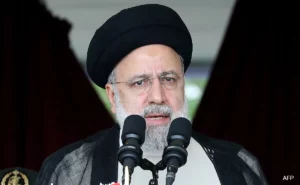Islamic State-Somalia To Become A Global Terror Financing Hub?

Answer Islamic State, Somalia, global terror financing
The Islamic State’s affiliate in Somalia, known as Islamic State-Somalia (IS-Somalia), is emerging as a significant global terror financing hub. Recent reports indicate that this group has expanded its financial influence beyond Somalia, establishing itself as a critical node for funding and supporting terrorist activities across Africa and potentially beyond.
Background and Emergence
IS-Somalia first appeared in 2015 when several commanders from the al-Qaida-linked group al-Shabaab defected to pledge allegiance to the Islamic State. Since then, it has grown in strength and capability, particularly in the Puntland region of Somalia. This transformation has allowed IS-Somalia to become a vital part of the Islamic State’s global network, facilitating financial transfers and recruitment efforts that extend well beyond its local operations.
Financial Operations
IS-Somalia generates substantial revenue primarily through extortion and illicit taxation. Recent estimates suggest that the group earns approximately $360,000 monthly, translating to over $4 million annually. This income is derived from extorting local businesses and financial institutions, particularly in the port city of Bosaso, which has become a focal point for its operations.The U.S. Treasury Department has identified key figures within IS-Somalia, such as Abdiweli Mohamed Yusuf, who plays a crucial role in managing the group’s finances and facilitating the movement of funds to other Islamic State affiliates across Africa. The International Crisis Group has noted that IS-Somalia’s financial operations have enabled it to support terrorist activities in countries like Mozambique and the Democratic Republic of Congo, indicating its growing influence within the broader Islamic State framework.
Strategic Importance
The strategic significance of IS-Somalia is underscored by its ability to operate effectively despite the challenges posed by the more dominant al-Shabaab. While al-Shabaab remains a more active threat on the battlefield, IS-Somalia has carved out a niche as a financial hub within the Islamic State network. This positioning allows it to facilitate connections and financial support for other affiliates, enhancing the Islamic State’s overall operational capabilities across the continent.
Future Implications
The potential for IS-Somalia to become a global terror financing hub raises serious concerns for international security. As the group continues to strengthen its financial networks and recruitment efforts, it may increasingly serve as a model for other Islamic State affiliates. The possibility of IS-Somalia’s leader, Abdulqadir Mumin, ascending to a more prominent role within the Islamic State hierarchy could further amplify its influence and operational reach.In conclusion, IS-Somalia’s evolution into a global terror financing hub reflects a broader trend within the Islamic State’s strategy to adapt and thrive in a post-caliphate world. With its growing financial capabilities and international connections, IS-Somalia poses a significant challenge to counterterrorism efforts both regionally and globally.






